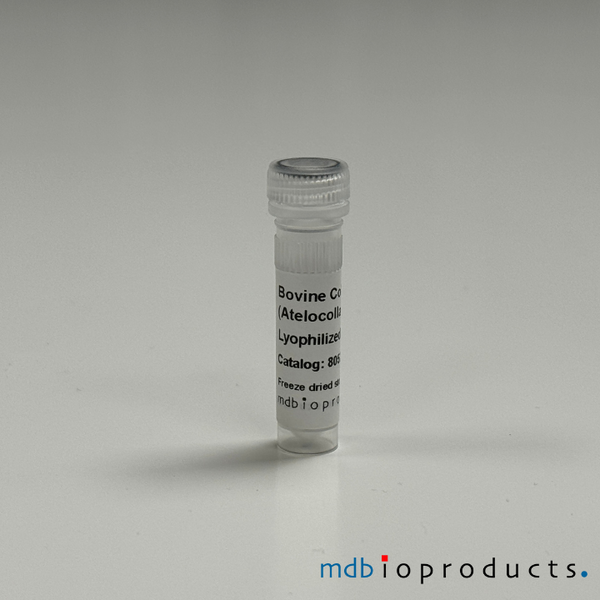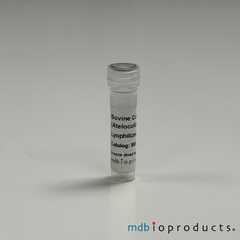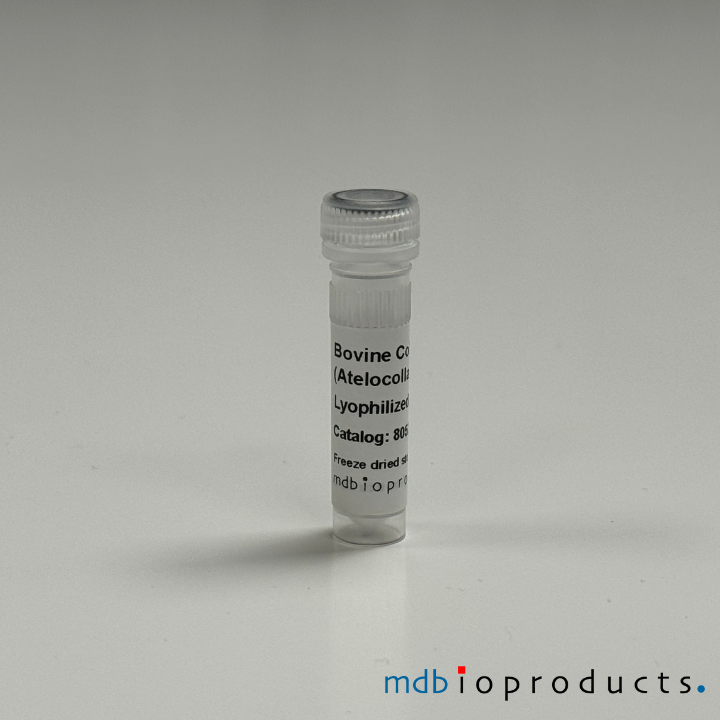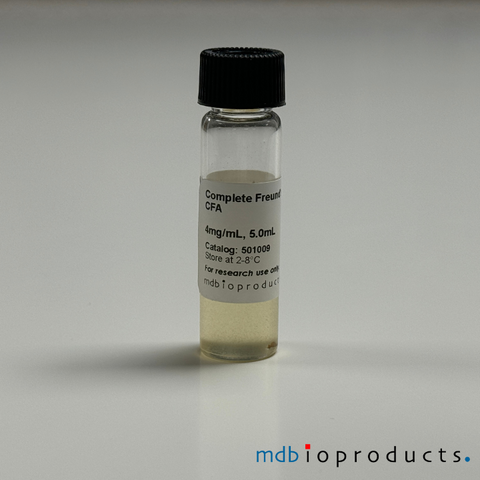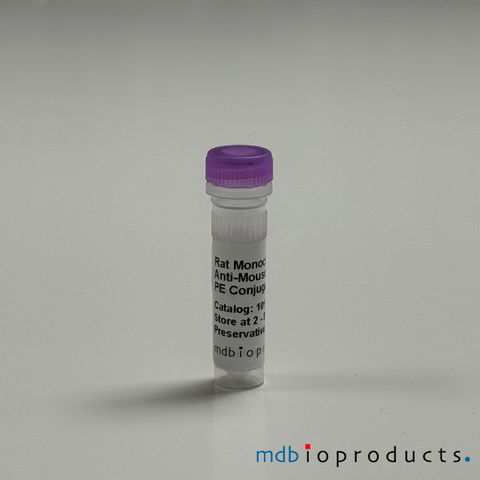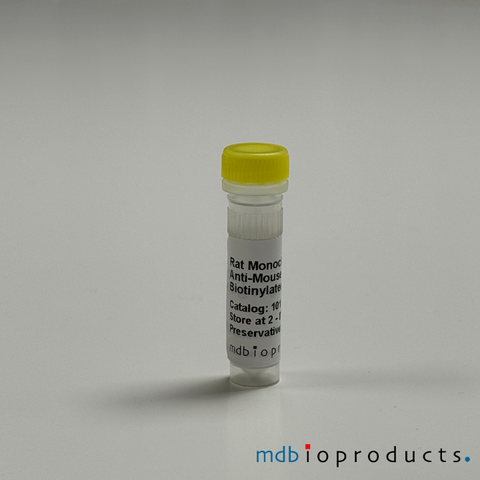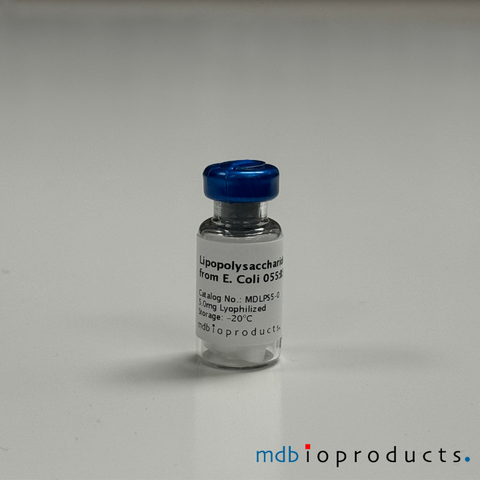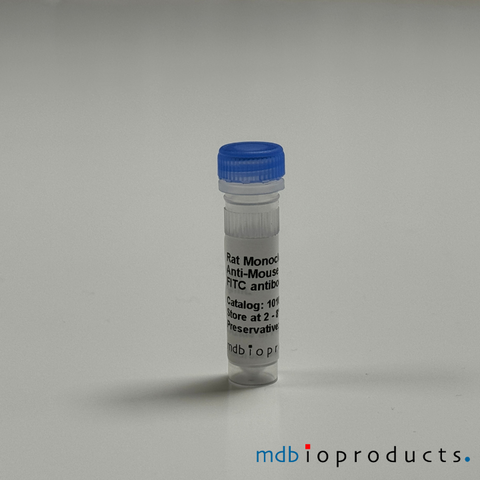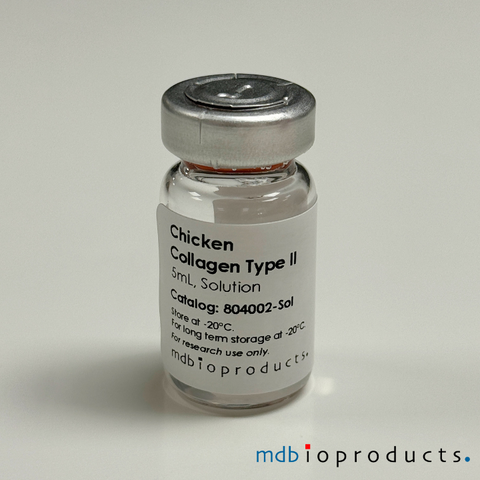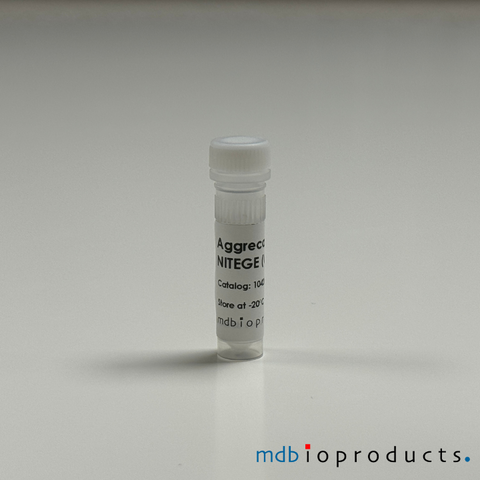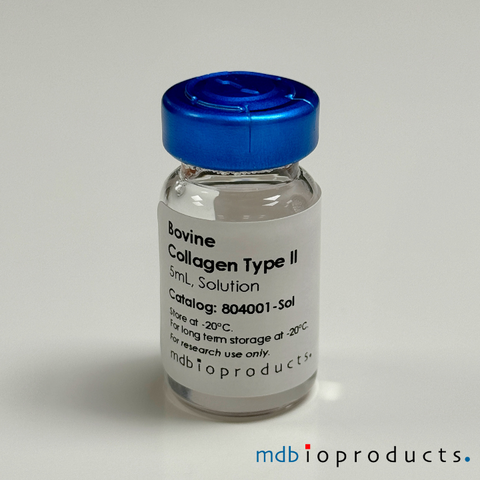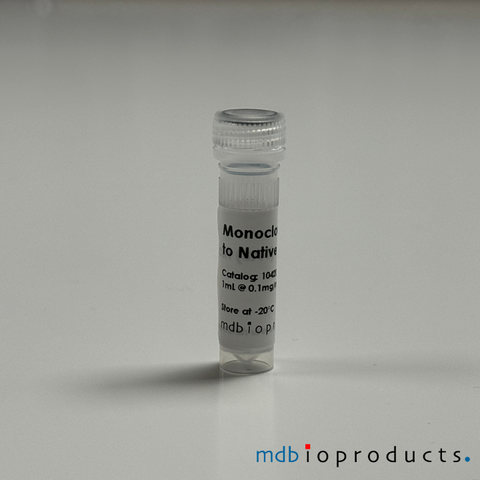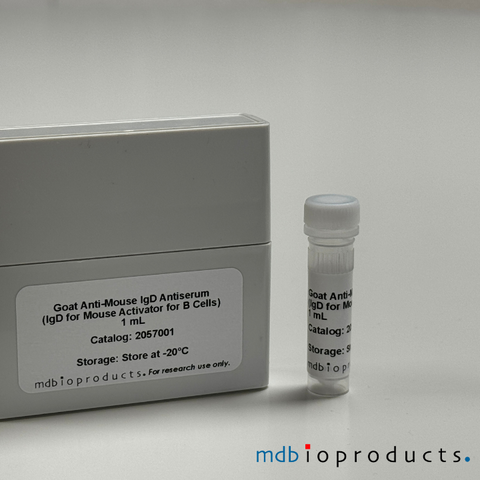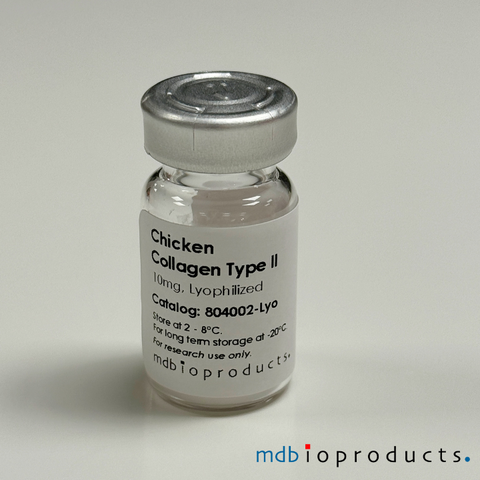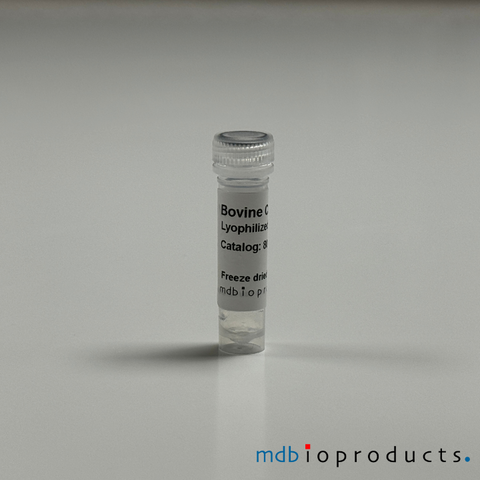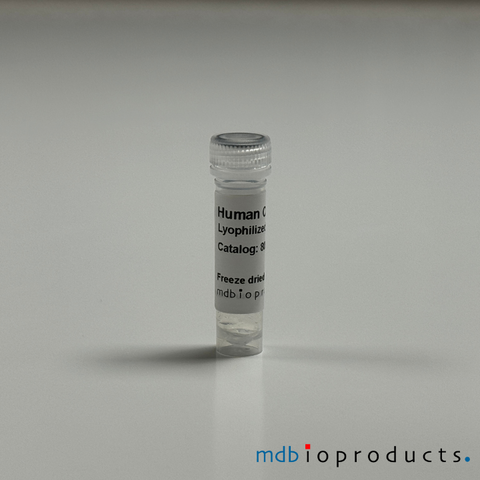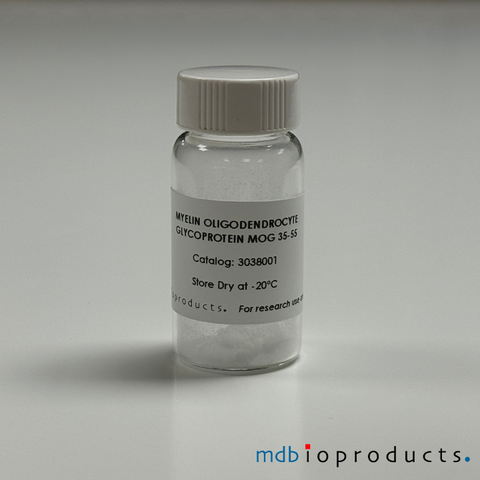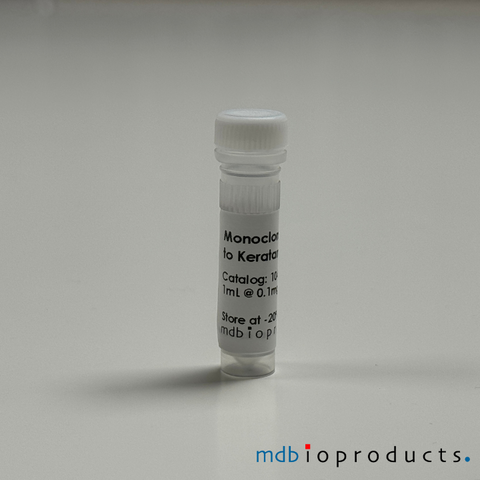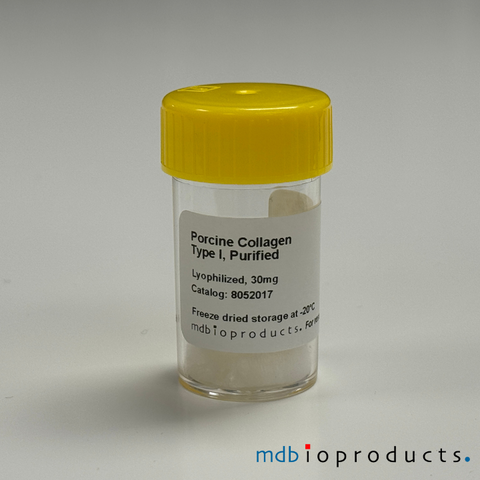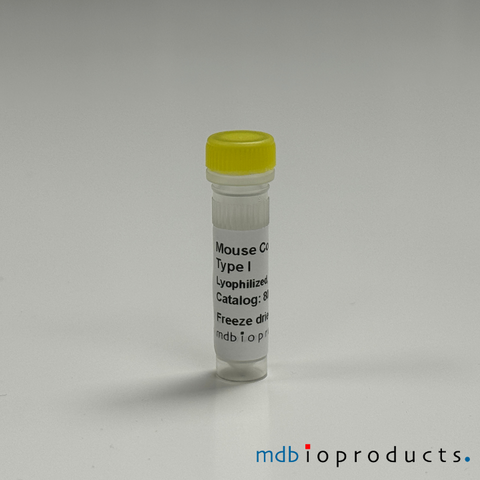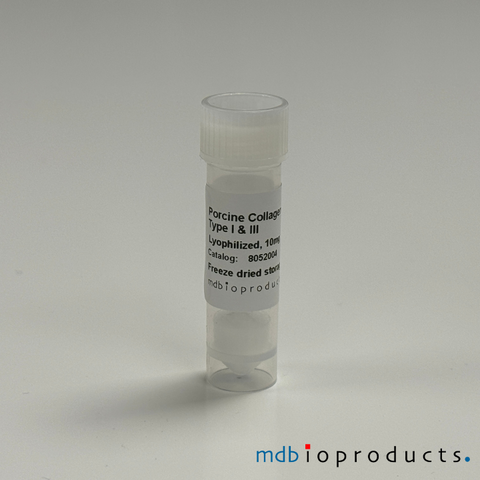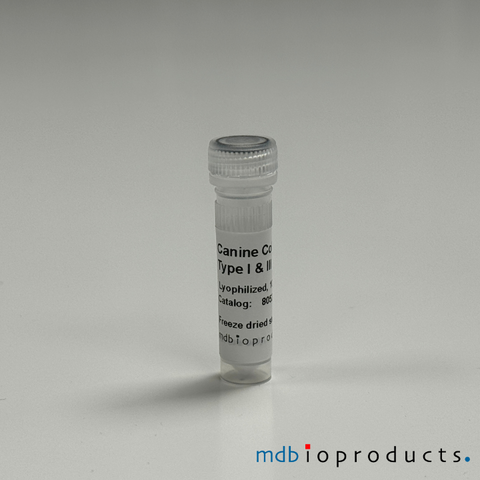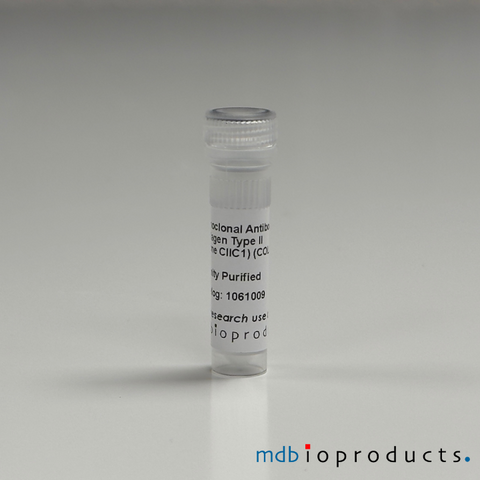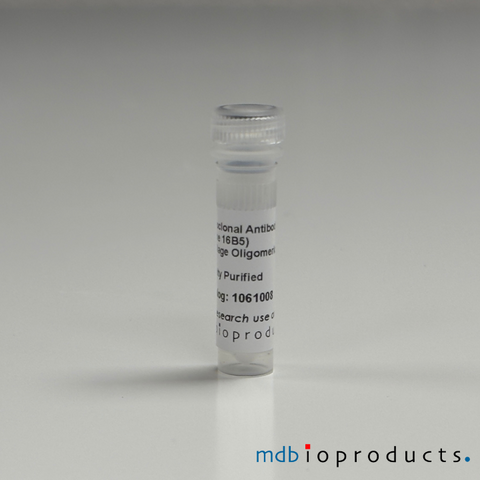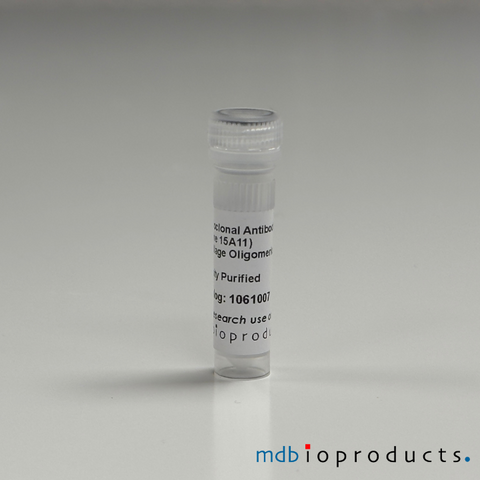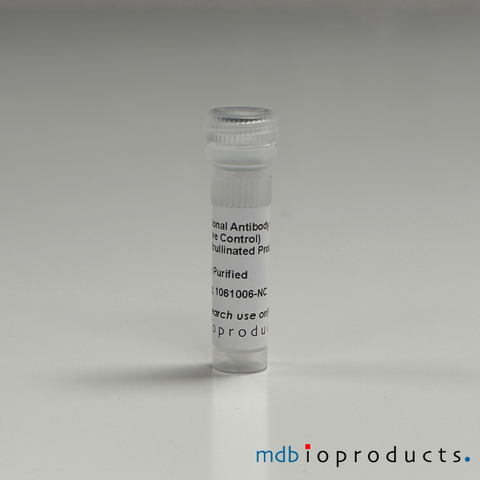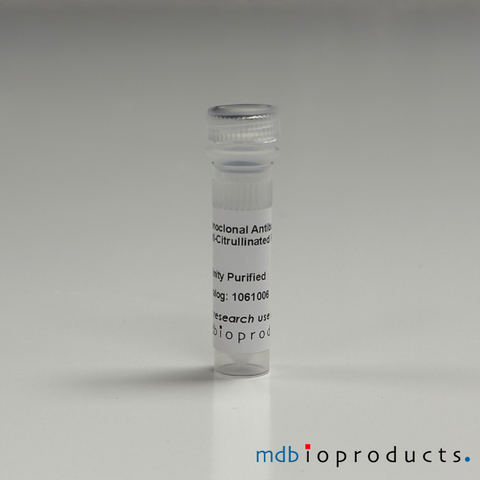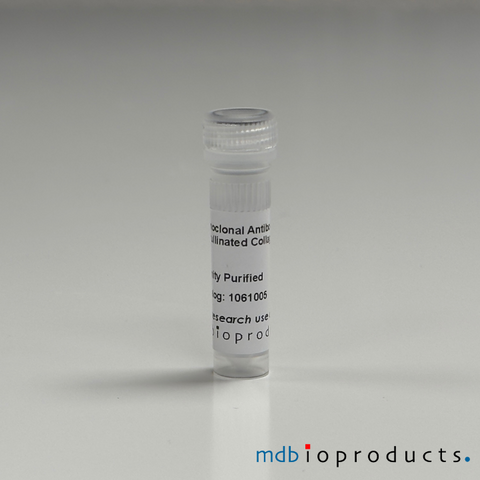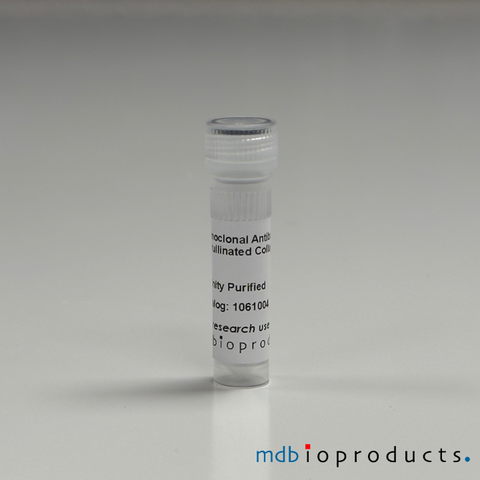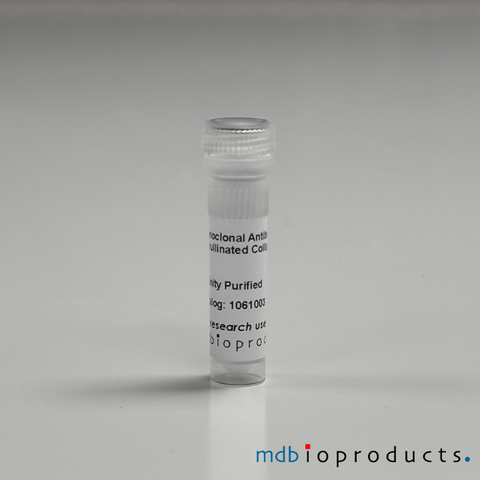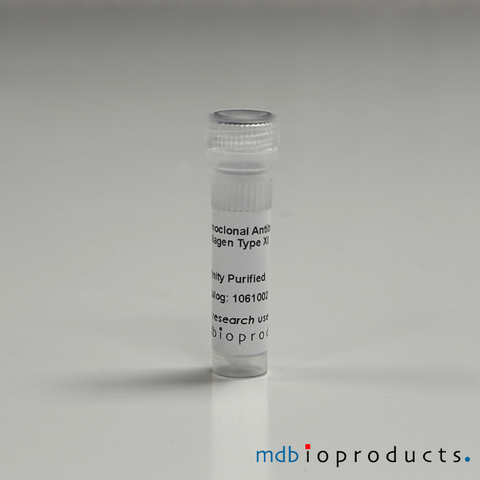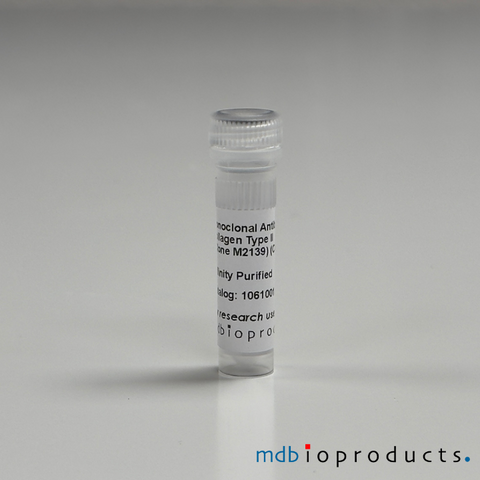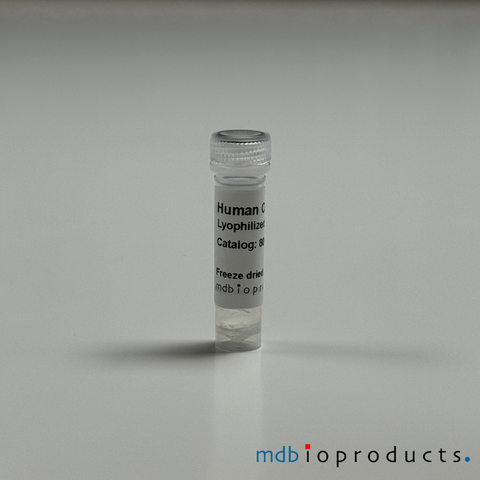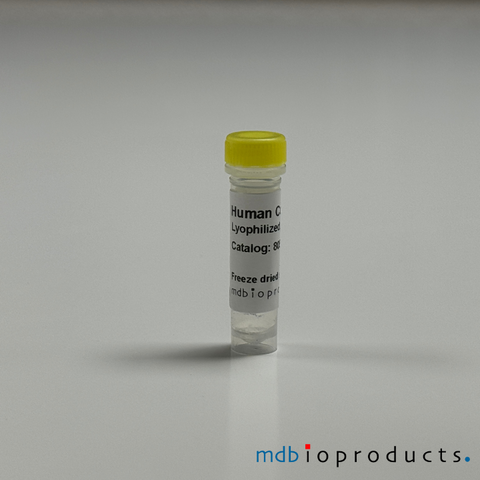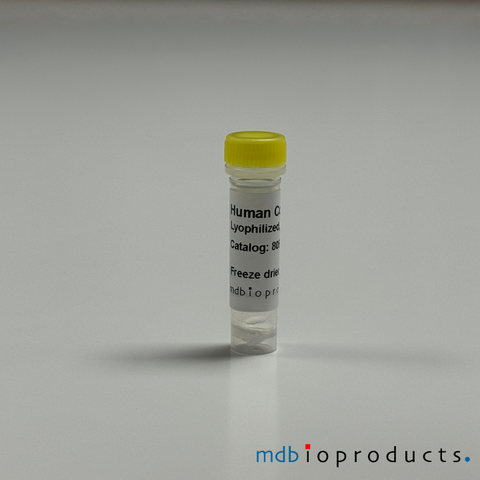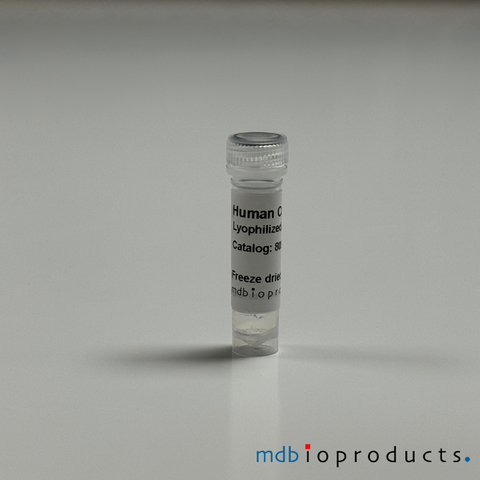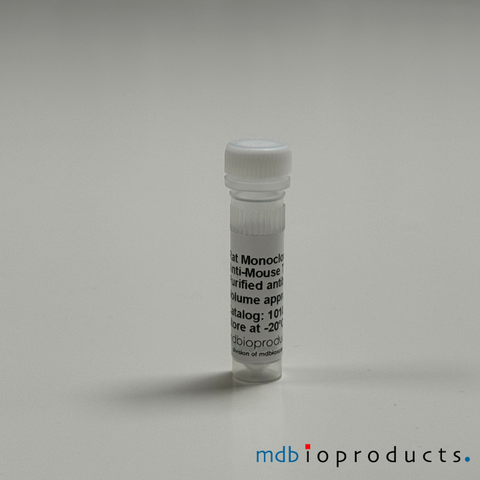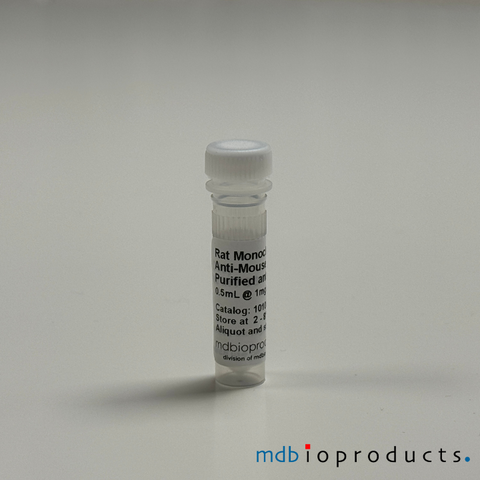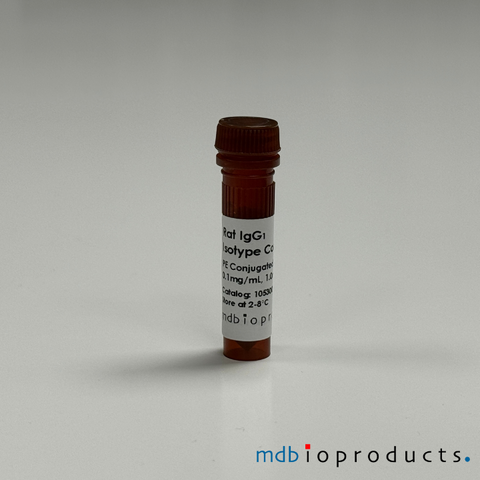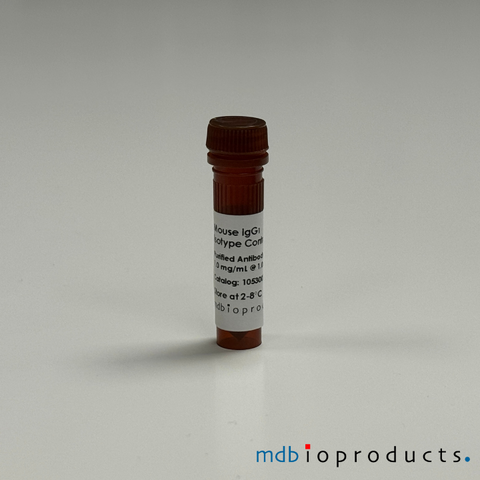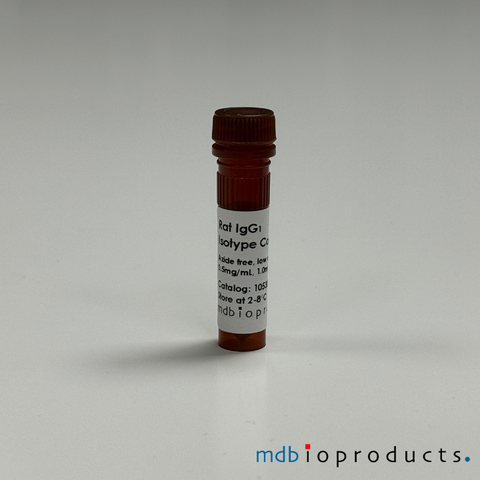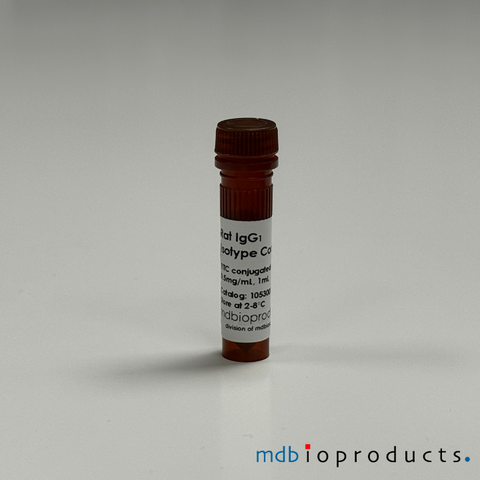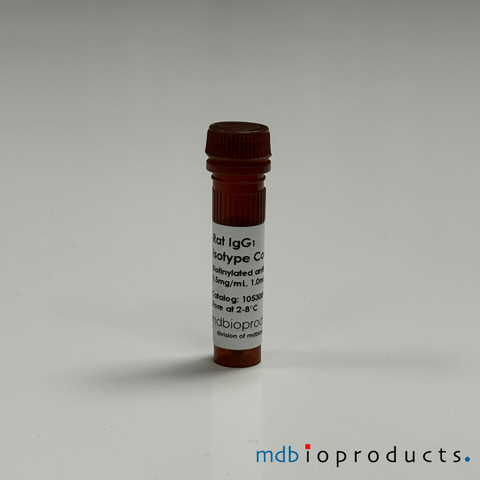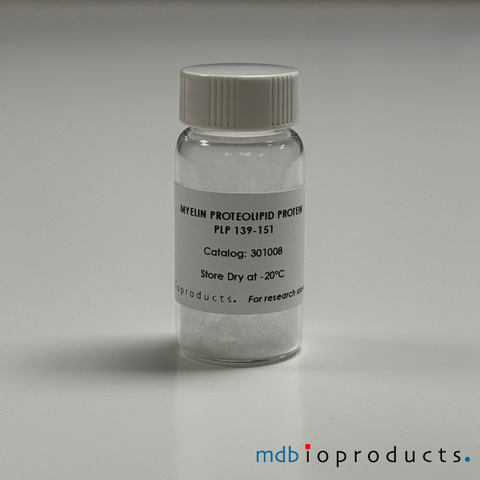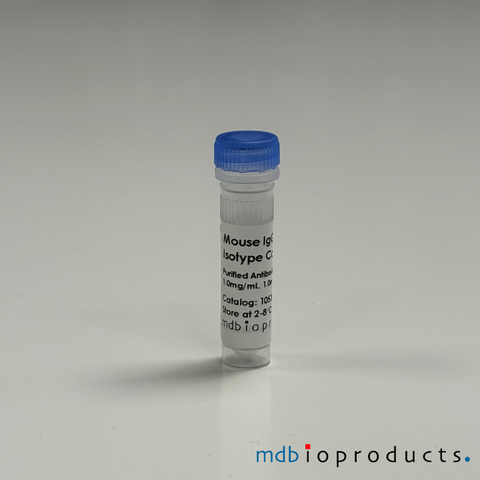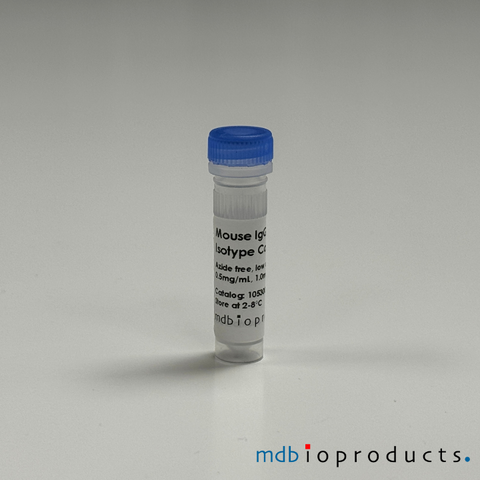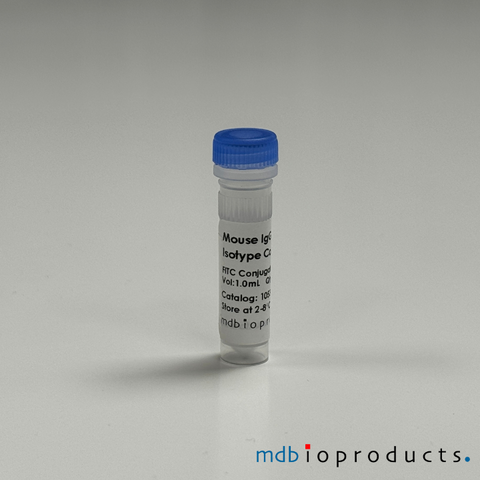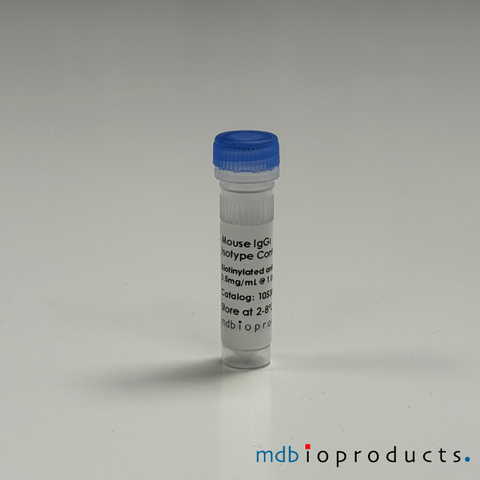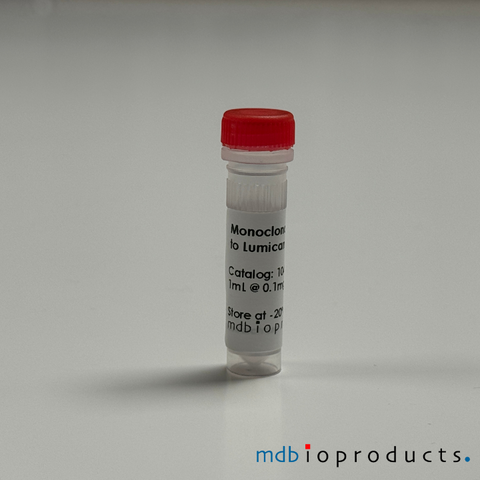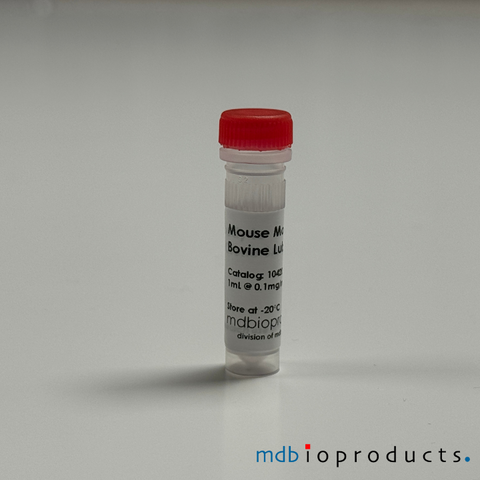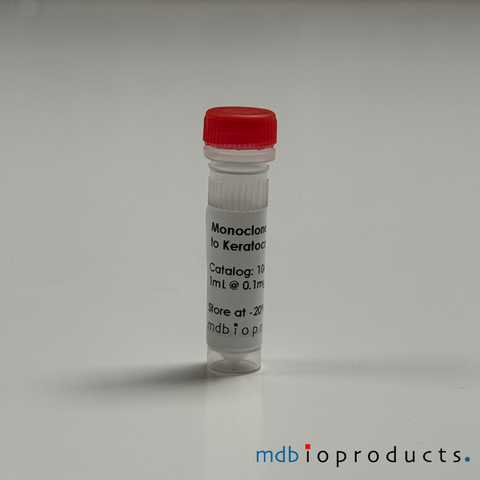Collagen Type V (Atelocollagen), Bovine, 1 mg
Purified Bovine Collagen Type V from bovine placenta (atelocollagen). Type V collagen is a fibrillar collagen that plays a vital role in the fibrillation of types I and III collagen, ultimately...
Protein
8052012
Purified Bovine Collagen Type V from bovine placenta (atelocollagen).
Type V collagen is a fibrillar collagen that plays a vital role in the fibrillation of types I and III collagen, ultimately contributing to optimal fibrillary formation and tissue quality. It is an essential component of the bone matrix, corneal stroma, and the interstitial matrix of muscles, liver, lungs, and placenta. However, dysregulation of collagen fibrillogenesis is a hallmark of several subtypes of Ehlers-Danlos syndrome (EDS).
Studies have shown that Type V collagen is responsible for regulating the heterotypic fiber diameter and is considered a regulatory fibril-forming collagen. It is a part of the family of collagen proteins consisting of Collagen I- Collagen XXVIII, which support and strengthen many tissues including skin, bones, muscles, and ligaments.
Type V collagen is associated with the COL5A1 gene which provides instructions to produce Collagen V. Like other collagens, it is made up of procollagen molecules.
Understanding the importance of Type V collagen in the body can help researchers understand the role it plays in maintaining tissue quality and preventing the onset of EDS.
Product Insert (PDF) - Informational use only. Please refer to insert included with product.
Data/Specifications:
Description: Purified Bovine Collagen Type V from bovine placenta (atelocollagen).
Form: Lyophilized, salt free, sterile 1mg / vial
Source: Bovine placenta
Purity: Bovine Collagen Type V (Atelocollagen) > 98%
Purification: Collagen was extracted from washed dissected tissue into dilute acetic after mild pepsin treatment- Collagen Type V was purified by using differential salt precipitation.
Sterility: Passed sterility test for bacteria and fungi.
Application: Cell culture (coating)
Reconstitution: Dissolve in 20 mM acetic acid. Suspension should be shaken or stirred for several hours or overnight between 2-8°C. Material is dissolved when it appears homogeneous, with no schlieren pattern (light refraction due to differing protein concentrations in the suspension). Recommended concentration 1-5 mg/ml. After dissolution store 1 month at +4°C.
Storage: Lyophilized protein: shipping at ambient temperature, long term storage (2 years) at -20°C or lower. Storage of reconstituted protein 1 month at +4°C
Related Products
Additional products you might interested in.
-
Complete Freund's Adjuvant, 4 mg/mL (5 mL)Complete Freund's Adjuvant (CFA or FCA) is 4 mg/ml M. Tuberculosis (non-viable) in mineral oil. For in-vivo/in-vitro studies. Typically used for th...
-
T1/ST2 (IL-33 R) Mouse, Monoclonal Antibody, PE Conjugated, 0.1 mLMouse T1/ST2 (IL-33 R) PE conjugated monoclonal antibody (Clone DJ8, Host / Isotype Subclass: Rat IgG1, light chain not isotyped) for the identific...
-
T1/ST2 (IL-33 R) Mouse, Monoclonal Antibody, Biotinylated, 0.5 mLMouse T1/ST2 (IL-33 R) biotinylated monoclonal antibody (Clone: DJ8, Host / Isotype Subclass: Rat IgG1, light chain not isotyped) for the identific...
-
Lipopolysaccharide (LPS), 5.0 mgHighly purified LPS for in vivo and in vitro use. Lipopolysaccharides (LPS), also known as lipoglyans and endotoxins, are large molecules consis...
-
T1/ST2 (IL-33R) Mouse, Monoclonal Antibody, FITC, 0.5 mLMouse T1/ST2 (IL-33 R) FITC conjugated monoclonal antibody (Clone: DJ8, Host / Isotype Subclass: Rat IgG1, light chain not isotyped) for the identi...
-
Collagen Type II, Chicken, Soluble, 2 mg/mLHighest quality (>99%) Collagen type II (CII) protein, purified from chicken sternum, for the induction of arthritis in the Collagen-Induced Art...
-
Aggrecan Antibody, C-terminal neoepitope NITEGE, 100 ugAggrecan monoclonal antibody to C-terminal neoepitope NITEGE (mouse, clone BC-13). This aggrecan degradation product usually remains within the tis...
-
Collagen Type II, Bovine, Immunization Grade, Soluble, 2 mg/mLImmunization Grade Collagen type II (CII) protein, purified from fetal bovine articular cartilage, for the induction of arthritis in the Collagen-I...
-
Lubricin Antibody, Native Bovine, 100 ugLubricin (PRG4) monoclonal antibody (mouse, clone 3A4) to detect the native form of bovine lubricin. Does not recognize reduced or denatured lubric...
-
Goat anti-Mouse IgD, Antiserum, 1 mLImmunoglobulin D activator for B-cells. Preservative-free for in vivo application. Immunoglobulin D (IgD) is an antibody isotype that is found prim...
-
Collagen Type II, Chicken, Lyophilized, 10 mgHighest quality (>99%) Collagen type II (CII) protein, purified from chicken sternum, for the induction of arthritis in the Collagen-Induced Art...
-
Collagen Type II, Bovine, Immunization Grade, Lyophilized, 10 mgImmunization Grade Collagen type II (CII) protein, purified from fetal bovine articular cartilage, for the induction of arthritis in the Collagen-I...
-
Bovine Collagen Type VI, Lyophilized, 0.1mgBovine Collagen Type VI protein purified from bovine placenta. Collagen Type VI is the major collagenous component of microfibrils in elastic fibe...
-
Human Collagen Type IV, Lyophilized, 0.1mgHuman Collagen Type IV protein purified from human placenta. Collagen Type IV is a type of collagen found primarily in the skin within the basement...
-
Myelin Oligodendrocyte Glycoprotein (MOG 35-55), 25 mgPurified myelin oligodendrocyte glycoprotein (MOG) for MOG-induced EAE models in mouse and rat. Multiple Sclerosis (MS) is a demyelinating disease...
-
Keratan Sulfate Antibody, 100 ugKeratan sulfate (KS) monoclonal antibody (mouse, clone 5D4) used to detect KS type I epitopes and KS type II epitopes. Liquid. Store at -20° C. K...
-
Collagen Type I (Atelocollagen) Porcine, 30 mgHighly Purified Porcine Collagen Type I from porcine tendon. Lyophilized. Reconstitute to a concentration of 1-5 mg/mL. Type I collagen is the m...
-
Collagen Type I, Mouse, 1 mgPurified type I native mouse collagen from mouse tail tendon. Lyophilized. Reconstitute to yield 1-5 mg/mL collagen solution. Type I collagen is...
-
Collagen Type I and III, Porcine, 10 mgPurified type I & III native porcine collagen from pig’s tissue, 10 mg. Highest quality collagen for research use. Type I collagen is the mo...
-
Collagen Type I and III, Canine, 10 mgPurified type I & III canine collagen. Type I collagen is the most abundant collagen and is found in connective tissues including tendon, ligam...
-
Collagen Type II, Monoclonal Antibody (Clone CIIC1), 100ugThis antibody binds specifically to the C1 epitope on triple helica collagen type 2. It cross-reacts with mouse, rat, chicken, baboon and horse...
-
Cartilage Oligomeric Matrix Protein (COMP), Monoclonal Antibody (Clone 16B5), 100ugThis antibody binds to the coiled-coil domain or pentamer COMP. It cross-reacts with mouse, rat and human. Cartilage Oligomeric Matrix Protein ...
-
Cartilage Oligomeric Matrix Protein (COMP) , Monoclonal Antibody (Clone 15A11), 100ugThis antibody binds to the fourth EGF (Epithelial Growth Factor) -like domain of mouse COMP, comprising residues 232–252, called the P6 epitope...
-
ACPA (Negative Control), Monoclonal Antibody (Clone E4NG-Mutant), 100ugThis antibody is a negative control for the E4NG antibody (product number 1061006). It is the mutated version of the E4NG antibody, with identi...
-
ACPA, Monoclonal Antibody (Clone E4NG), 100ugThis antibody recognizes multiple citrullinated proteins/peptides, including CCP2, citrullinated collagen type 2 (COL2) peptides, citrullinated...
-
ACC4 (IgG2b), Monoclonal Antibody, 100ugThis antibody is an anti-citrullinated protein antibody (ACPA) that on Collagen alpha-1 (II) chain binds specifically to citrullinated C1 epito...
-
ACC4 (IgG1), Monoclonal Antibody, 100ugThis antibody is an anti-citrullinated protein antibody (ACPA) that, on Collagen alpha-1 (II) chain, binds specifically to citrullinated C1 epi...
-
ACC1, Monoclonal Antibody, 100ugThis antibody binds ACC1 to the citrullinated triple-helical collagen type II (CII) epitope (position 359-369), the C1 epitope. The ACC1 antibo...
-
Collagen Type XI, Monoclonal Antibody, 100ugThis antibody (clone L10D9) binds to the triple-helical D3 epitope on collagen XI, which is shared with Collagen type II. The antibody binds to...
-
Collagen Type II, Monoclonal Antibody (Clone M2139), 100ugThis antibody (clone 2139) recognizes the conformational J1 epitope on the triple-helical structure of the native Collagen Type II molecule. Th...
-
Human Collagen Type V, Lyophilized, 0.1mgHuman Collagen Type V protein purified from human placenta. Collagen Type V is a fibrillar collagen. Collagen Type V is essential for the fibrilla...
-
Human Collagen Type III, Lyophilized 0.1 mgHuman Collagen Type III protein purified from human placenta. Type III collagen is a fibrillar collagen, and it consists of only one collagen α ch...
-
Human Collagen Type I, Lyophilized 0.1 mgHuman Collagen Type I protein purified from human placenta. Type I collagen is the most abundant collagen and is found in connective tissues includ...
-
Human Collagen Type II, Lyophilized 0.1 mgHuman Collagen Type II protein purified from human cartilage. Collagen Type II is a fibrillar collagen, and the main component of cartilage. Type ...
-
T1/ST2 (IL-33 R) Mouse, Monoclonal Antibody, 0.5 mLMouse T1/ST2 (IL-33 R) monoclonal antibody (Clone: DJ8, Host / Isotype Subclass: Rat IgG1, light chain not isotyped) for the identification and pur...
-
T1/ST2 (IL-33 R) Monoclonal Antibody, azide-free, 0.5 mLMouse T1/ST2 (IL-33 R) monoclonal antibody (Clone DJ8, Host / Isotype Subclass: Rat IgG1, light chain not isotyped), azide-free, for the identific...
-
Rat IgG1 Isotype Control, R-PE Conjugated Antibody, 0.1 mgIsotype controls are most commonly used in flow cytometry and immunohistochemistry experiments as negative controls that measure the level of non-s...
-
Rat IgG1 Isotype Control, Purified Antibody, 0.5 mgIsotype controls are most commonly used in flow cytometry and immunohistochemistry experiments as negative controls that measure the level of non-s...
-
Rat IgG1 Isotype Control, Low endotoxin, Azide-free, 0.5 mgIsotype controls are most commonly used in flow cytometry and immunohistochemistry experiments as negative controls that measure the level of non-s...
-
Rat IgG1 Isotype Control, FITC Conjugated Antibody, 0.5 mgIsotype controls are most commonly used in flow cytometry and immunohistochemistry experiments as negative controls that measure the level of non-s...
-
Rat IgG1 Isotype Control, Biotin Conjugated Antibody, 0.5 mgIsotype controls are most commonly used in flow cytometry and immunohistochemistry experiments as negative controls that measure the level of non-s...
-
Myelin Proteolipid Protein (PLP 139-151), 15 mgPurified myelin proteolipid protein (PLP) for PLP-induced EAE models in mouse and rat. Multiple Sclerosis (MS) is a demyelinating disease of the c...
-
Mouse IgG1 Isotype Control, Purified Antibody, 1 mgMouse IgG1 Isotype control, purified. This product supplied as 1.0 mg of purified immunoglobulin in 1.0 mL of borate buffered saline, pH 8.2. Iso...
-
Mouse IgG1 Isotype Control, low endotoxin, azide-free, 0.5 mgMouse IgG1 Isotype control, Low endotoxin, azide-free. The low endotoxin, azide-free antibody is supplied as 0.5 mg purified immunoglobulin in 1.0 ...
-
Mouse IgG1 Isotype Control, FITC-conjugated Antibody, 0.1 mgMouse IgG1 Isotype control, FITC-conjugated. The fluorescein (FITC) conjugate is supplied in 1.0 mL PBS/NaN3. Store at 2 – 8 °C. Isotype controls...
-
Mouse IgG1 Isotype Control, Biotin-conjugated Antibody, 0.5 mgMouse IgG1 Isotype control, Biotin Conjugated. The biotin conjugate is supplied as 0.5 mg in 1.0 mL of PBS/NaN3. Store at 2 – 8 °C. Isotype contr...
-
Lumican, Antibody, 100 ugLumican (LUM) monoclonal antibody (mouse, clone Lum-1) to detect a protein epitope in lumican. Liquid, 1 mL/vial. Concentration: 0.1 mg/mL Lumica...
-
Lubricin Antibody, Bovine, 100 ugLubricin (PRG4) monoclonal antibody (mouse, clone 6A1) to detect superficial zone protein (SZP) from bovine articular cartilage and a non conformat...
-
Keratocan Antibody, 100 ugKeratocan (KERA) monoclonal antibody (mouse, clone Ker-1) to detect keratocan. 1 mL/vial. Concentration is 0.1 mg/mL. Normal keratocan expressio...

